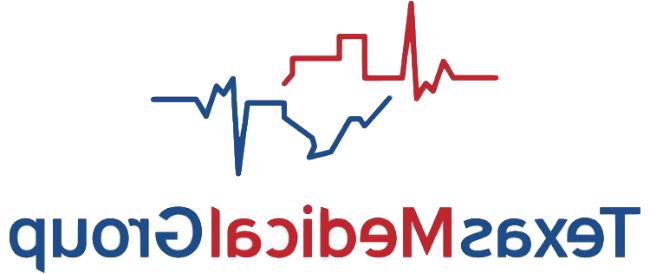
The Business Implications of the 痛单位’s New Independent Contractor Rule
1月. 2024年9月9日,美国.S. Department of Labor (痛单位) released a 最后的规则, effective March 11, 2024, 修订劳工部美高美集团4688如何根据《美高美集团4688》(FLSA)分析谁是雇员或独立承包商的指导意见. This 最后的规则 rescinds the current independent contractor rule that was published on Jan. 7, 2021. If this rule becomes effective, 这可能导致更多的工人被归类为雇员,而不是独立的承包商. This change would be significant, particularly in the gig economy, as it would afford more individuals rights and protections under the FLSA.
雇主了解新规则及其对其业务的潜在影响至关重要,因为最终的独立承包商规则可能会显著影响雇主的运营和合规成本,并增加他们的诉讼风险. 尽管最终规则在生效之前不会对雇主施加任何新要求, 雇主应该熟悉这条规则,并评估他们可能需要实施哪些改变.
本文概述了痛单位新的独立承包商规则,并概述了该规则将如何影响企业. Due to the significant impact this new rule may have on organizations, employers should consult with their legal counsel to address any specific questions or concerns.
Overview of the 痛单位’s New Independent Contractor Rule
Under the FLSA, employees are entitled to minimum wage, overtime pay and other benefits. Independent contractors are not entitled to these protections and benefits. 错误地将员工归类为独立承包商可能会给雇主带来严重的经济和法律后果, including costly litigation, penalties and attorney fees.
最终规则废除了2021年独立承包商规则,并恢复到2021年之前的规则先例. 这样做的时候, the 最后的规则 restores the multifactor, 总体情况分析,以评估工人是雇员还是独立承包商. 最终规则确保对所有经济现实测试(ERT)因素进行平等分析,而不是为特定因素或一组因素分配预先确定的权重. These six factors include:
- The opportunity for profit or loss depending on managerial skill
- Investments by the worker and the potential employer
- The degree of permanence of the work relationship
- The nature and degree of control
- The extent to which the work performed is an integral part of the potential employer’s business
- The worker’s skill and initiative
In addition to focusing on the six ERT factors, 新规则允许考虑其他因素,如果它们与经济依赖的总体问题有关. According to the 痛单位, 这一最终规则将降低员工被错误归类为独立承包商的风险,同时为企业与自己创业的个人打交道提供一致的方法.
It’s likely that the 痛单位’s new independent contractor rule will be challenged in court. This could delay the 最后的规则’s implementation. 拜登政府试图在2021年5月撤销《梅高美集团4858》,目前正在进行诉讼. 在这种情况下, 联邦法院裁定,拜登政府废除该规定违反了联邦法律,并恢复了2021年的规定. This lawsuit has been delayed for months while the 痛单位 prepared its new rule. The case will now likely restart since the agency released the 最后的规则.
The New Rule’s Potential Impact on Employers
2021年的独立承包商规则使雇主更容易将工人归类为FLSA下的独立承包商. 这条规则集中于两个核心因素:工人对工作的控制的性质和程度,以及工人基于主动性和/或投资的盈利和亏损机会. 在决定独立承包人的地位时,这些因素比其他三个ERT因素(工作所需的技能数量)更重要, (工作关系的持久程度以及工作是否为一个完整的生产单位的一部分). 然而, 劳工部的新规定可能会使雇主更难以将工人归类为独立承包商,因为它恢复了复杂的多因素和整体情况分析, which is generally viewed as more employee-friendly. As a result, the new rule will likely lead to more employees being classified as employees.
美国劳工部的最终规定可能会大大增加雇主对雇员进行错误分类的风险. 因此, employers may face increased liability risks, such as class action lawsuits or administrative actions, for not providing FLSA-required benefits and protections to workers. 这可能会对小型企业造成比大型企业更大的影响,因为它们通常没有资源或必要的人员来解决复杂的遵从性问题, such as employee classification under the FLSA.
根据FLSA,将更多的工人归类为雇员,可能会对零工经济产生重大影响. 零工(e).g., delivery drivers) are typically classified as independent contractors. If these workers are reclassified as employees under the 痛单位’s new rule, industries that rely on these workers, such as construction, transportation and media, will likely be impacted more than others. This could result in businesses being less likely to hire or rely on gig workers.
Preparing for the 痛单位’s New Rule
尽管劳工部的最终规定在生效之前不会对雇主施加任何新要求, 雇主应该熟悉最终规则,并评估如果规则生效,他们可能需要采取哪些改变. 雇主可以通过确保他们符合FLSA下的所有雇员分类要求来为劳工部新的独立承包商规则做好准备. This is especially important for organizations that rely on independent contractors. While the 最后的规则 imposes a different standard than the 2021 rule, most employers are likely already familiar with the new rule, as it mirrors an earlier standard that existed before the 2021 rule.
雇主可采取以下措施,确保雇员符合劳工处的最终规定:
- Audit existing working relationships with gig workers, 自由职业者, independent contractors and employees.
- Determine whether any workers’ classification must be changed in light of the 最后的规则.
- Review any agreements with gig workers, 自由职业者, independent contractors and employees to ensure they comply with the 最后的规则.
- Update 就业 policies and procedures to align with the 痛单位’s 最后的规则.
- Train managers on the FLSA’s worker classification requirements.
While the 痛单位’s 最后的规则 only applies to the FLSA, many states have their own rules for determining worker classification. To avoid potential violations and penalties, employers need to be familiar with all laws that apply to their organizations. 鼓励雇主寻求法律顾问,讨论与雇员分类要求有关的具体问题和关切.
Summary
If the 痛单位’s 最后的规则 becomes effective, it will significantly impact most employers. 精明的雇主会花时间重新审视他们的员工分类,并了解最终规则对他们组织的潜在影响. By taking a proactive approach and reassessing worker classification, 雇主可以帮助确保他们符合任何合规要求,并减轻任何潜在的法律风险.
这份人力资源见解并非详尽无遗,任何讨论或意见也不应被视为专业建议. © 2024 Zywave, Inc. All rights reserved.

讨论
There are no comments yet.